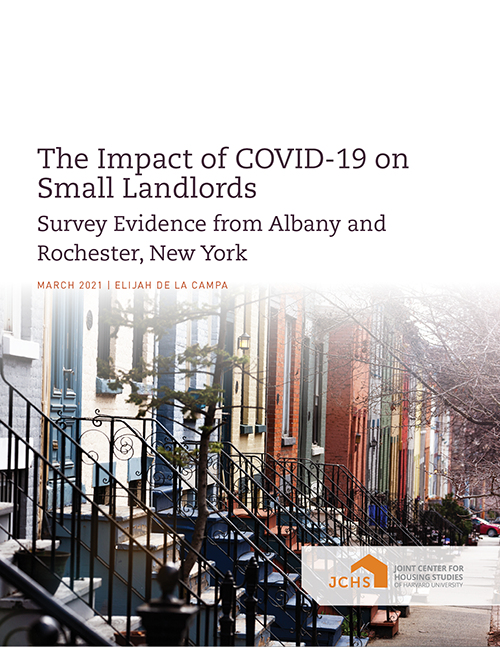The Impact of COVID-19 on Small Landlords: Survey Evidence from Albany and Rochester, New York
The COVID-19 pandemic and subsequent recession have made it more difficult than ever for low- and moderate-income US renters to meet their housing payment obligations. Yet little is known about the impact on the small mom and pop landlords who are most likely to house these vulnerable tenants. In this paper, we report results from two survey waves in Albany and Rochester, New York, meant to assess the business impact of COVID-19 on individuals who own three or fewer rental properties. Relative to the prior year, small landlords’ rent collection was down in June 2020. By October, rental non-payment had intensified in low-income and minority communities but improved in more advantaged ones. Small landlords’ most common response to this financial strain has been to offer tenants repayment plans and defer property maintenance. At the same time, in low-income and minority neighborhoods landlords have been more likely to evict tenants and less likely to offer rent decreases. These results highlight both the financial stress small landlords are currently facing and how their responses to this stress may serve to reinforce existing housing struggles for vulnerable tenants. Our findings align with emerging research on the broader effects of the pandemic, which has found that COVID-19 has exacerbated inequalities across a range of domains, including employment, education, and health, pointing to the need for broad rental assistance for landlords and tenants alike.

